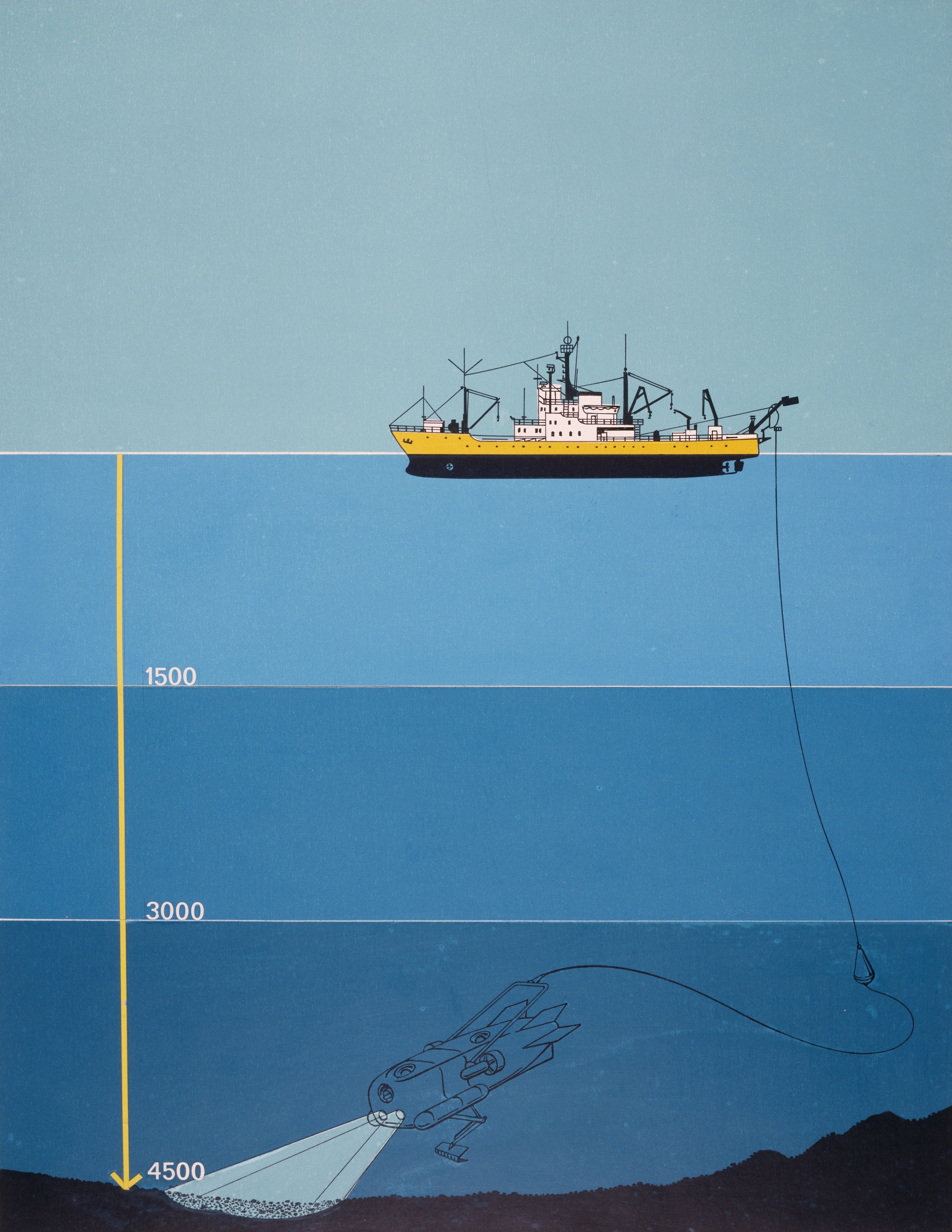
Manganese nodules on the Atlantic Ocean floor, discovered in 2019 during the Deep Sea Ventures pilot test. NOAA
Shoring Up The Metals Supply Chain
The Biden administration is bent on increasing critical metals supplies, but it’s overlooking an obvious source: the ocean.
On Feb. 24, President Biden signed an executive order to “secure” America’s critical supply chains, including critical minerals. (Metals are one type of mineral.)
Critical minerals are an essential part of defense, high-tech, and other products. “From rare earths in our electric motors and generators to the carbon fiber used for airplanes—the United States needs to ensure we are not dependent upon foreign sources or single points of failure in times of national emergency,” the White House said in its announcement of the executive order.
But where are we going to get those critical goods? Mining companies have scaled back on production, and their exploration budgets are down double digits. Although mining is expected to rise post-COVID, the downturn means that companies haven’t been looking for new sources of minerals, which puts supply-making behind.
Meanwhile, China is dominating the critical minerals market. It produces 63 percent of the world’s rare earth elements and has strategic interests or control over much of the mining for other critical minerals, such as cobalt, lithium, and the like. These are the types of minerals used in EV batteries.
Overall, the mining of critical minerals needs to increase fivefold to meet the expected demand by 2050, the World Bank says in a report.
Even if U.S. mining companies fell in line with the administration’s efforts to shore up supplies, it would still take years to catch up to China. Funding exploration and cranking up extraction operations is no easy feat. It takes about 10 years to get a mine permitted and up and running in the United States. And It’s not only time-consuming and expensive, it’s dirty. Terrestrial mines cause a tremendous amount of environmental degradation. That doesn’t sit well with investors these days when environmental, social, and corporate governance objectives need to be met. Indeed, “How minerals are produced and the carbon emissions created during their production are under more scrutiny as manufacturers face pressure from governments, investors and end consumers for cleaner, more ethical supply chains,” EY says in a report.
By example, to make just one electric car, it takes a half million pounds of materials. And those materials need to be extracted and processed, often causing toxic runoffs that contaminate water supplies and other natural resources.
There is a potential solution to the critical mineral supply dilemma. The Biden administration could do well by supporting efforts to extract more minerals from the ocean.

Far out in the Pacific, the Clarion-Clipperton Zone offers trillions of nodules that contain many of the critical minerals needed to secure the U.S. supply chain. The Clarion-Clipperton Zone spans an area the size of the continental United States (about 1.7 million square miles) between Hawaii and Mexico, and reaches depths of 3.4 miles. No one is extracting minerals from there yet. But 18 sovereign states and companies have been granted licenses from the International Seabed Authority to explore the Zone.
Nodules are collected from atop the seafloor rather than dredged, greatly lessening disturbances of marine ecosystems. The process is about 90 percent less carbon polluting than terrestrial mining, as well. Transportation and processing do require some fossil fuel energy use. In any event, there are enough nodules on this part of the ocean floor—about one percent of the global ocean—to power the green transition and meet the supply chain resiliency goals of the Biden administration.
The Executive Order calls for four areas to be immediately put under review across all federal agencies to address vulnerabilities in supply chains: active pharmaceutical ingredients; critical minerals; semiconductors; and large capacity batteries, such as those used in electric vehicles. The EV market is a fast-growing sector that requires billions of tons of new materials. Some 250 million electric vehicles are expected to be manufactured by 2030, and that doesn’t include solar panels and other alternative energy sources that equally require critical metals.
The Biden administration’s 100-day supply chain review is meant to identify near-term steps that can be taken, including with Congress, to address vulnerabilities in the supplies of these critical goods.
A big first step would be to sign the Law of the Sea Convention, which would provide the U.S. with the legal framework to access more ocean resources. China, the European Union, and 166 other nations are signatories. The U.S. has reportedly held back on signing because of the environmental requirements the Convention mandates. It’s time to get over that and get on with business, especially if Biden wants to claim climate change leadership, as he has so publicly pronounced.
The supply chain executive order ends by saying that it aims to “support the fight against global climate change, and maintain America’s technological leadership in key sectors.”
While the Order’s aim is true, it needs to broaden its scope to include the oceans. They can help provide the resilience the U.S. supply chain needs.
Thomas M. Kostigen is an award-winning and bestselling author. His latest book is Hacking Planet Earth: How Geoengineering Can Help Us Reimagine the Future (TarcherPerigee).



